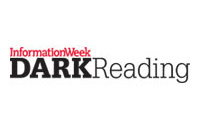Texas Refuses to Pay $2.5M in Massive Ransomware Attack

Monday, September 9, 2019
The DIR is now scheduling follow-up visits with governments to ensure their rebuilding efforts are successful, according to an update the organization published late last week. It is unaware of ransom being paid by any of the 22 affected municipalities in the aftermath of the attack.
Ransom payments are a controversial topic among security professionals, most of whom disagree with paying attackers and fueling their motivation to launch future campaigns. Still, depending on the size of the attack and amount of money requested, ransom payments may amount to less than the cost of rebuilding networks from scratch — a burden that could potentially fall on taxpayers' shoulders, commented ImmuniWeb CEO Ilia Kolochenko.
"However, given that no human lives are at stake, in a long term prospective, such rigid tactics may well disincentivize the attackers," he said of the Texas attack. It's imperative governments have processes in place to handle incidents of this scale. Based on the DIR's latest update, it seems Texas had done sufficient preparation to avoid making a high ransom payment. Read Full Article
Adweek: Looking at 4 Major Ways GDPR Has Altered the Marketing Landscape
Information Security Buzz: Texas Refuses To Pay Ransomware After Coordinated Attack

